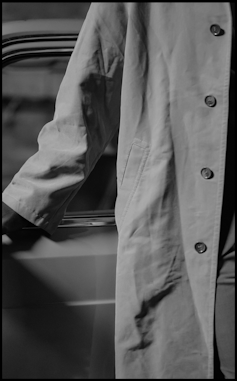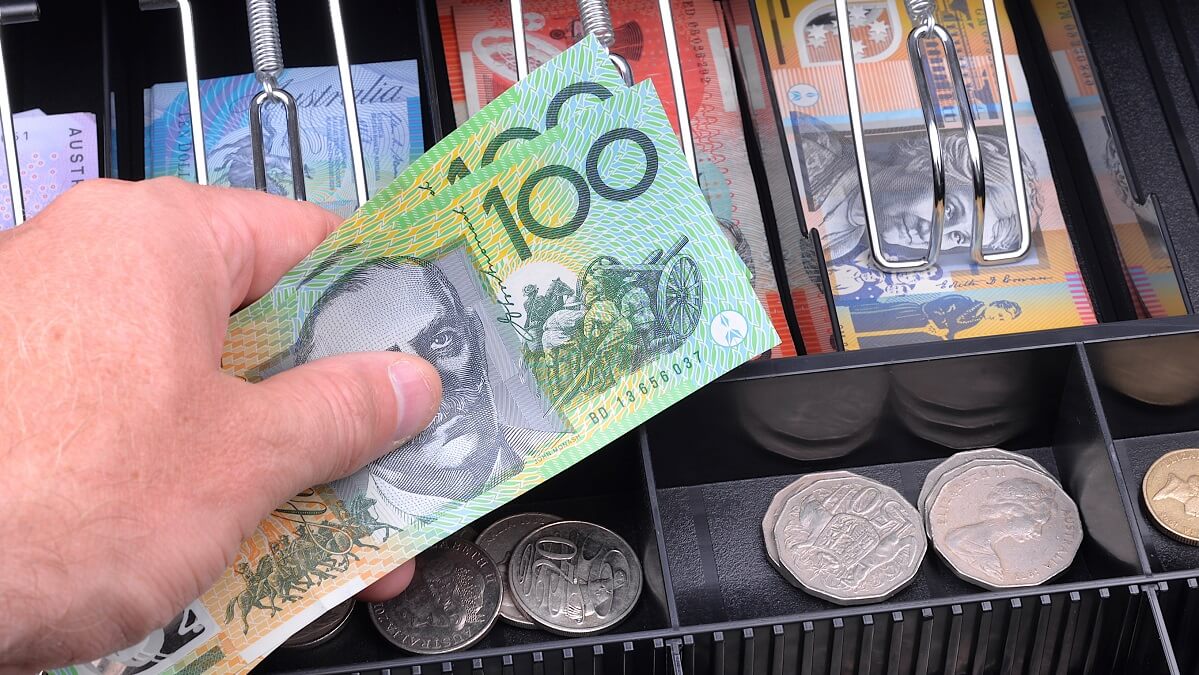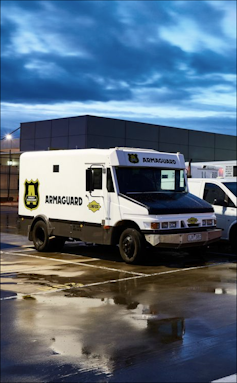Peter Martin, Crawford School of Public Policy, Australian National University
Late last year, the Reserve Bank gave 1000 Australians diaries and asked them to record every payment they made over the course of a week. Of the 13,000 payments, only 17 were with cheques.
It’s been an astounding collapse. Back in 1980, at the start of the credit card era, 85 per cent of non-cash payments were made with cheques. Today it’s less than 0.1 per cent.
Earlier this month, the government announced it was following New Zealand, Denmark, the Netherlands and others, closing our cheque system down by 2030.
Meanwhile, New Zealand is already on to the next thing. Having phased out cheques, it’s now looking at winding down the use of cash.
So how close is Australia now to becoming a cash-free nation?
The hidden costs of cheques and cash
Cheques are horrendously expensive to process. The average cost of everything that had to happen to process a cheque exceeds $5 per payment, mostly borne by banks.
But cash is expensive in its own way. The average cost of creating, sorting and trucking all those sheets of plastic and coins exceeds 50 cents per payment, mostly passed on to banks and retailers, and it is soaring as the number of payments plummets.
As recently as 2007, the vast bulk of consumer payments – 69 per cent – were in cash. By 2019 only 27 per cent were in cash. By 2022, after two years of COVID, it was only 13 per cent.
At this rate, it’s hard to be certain how long cash will last.
What made cheques so slow and costly
For those who’ve never had to write one, cheques are bank-issued pieces of paper on which the owner writes the name of the person they want the bank to pay and the amount. They they hand it to that person, who then hands it to their bank, which then tries to get the money from the payer’s bank.

cottonbro/pexels
Behind the scenes, until recently when the electronic transmission of digital images changed things, each bank would collect all the cheques that had been presented to its branches each day and sort them into bags, one for each originating bank.
Then, late at night, its ‘bag man’ would travel to a nondescript city location with a bag for each bank, hand the correct one to each of the other bagmen, and be given bags in return, which the bagman would take back to the bank for signature checking.
When each bank worked out what it owed the other bank, they would usually discover the flows largely cancelled each other out, and then make net payments which would be reflected in the cheque-writer’s account, up to five business days later.
Always expensive, the cost per cheque grew and grew as the number of Australians paying with cheques dwindled to a fraction of what it had been.
How moving cash became a loss-making business
It’s the same sort of story with cash. Although we don’t often think about it, cash costs an awful lot to move, sort and restock.
Printing the notes still makes money – it costs about 32 cents to make each note, whether it’s worth $5 or $100, although making some coins now loses money.
The real expense is in moving notes and coins around, keeping them nearby and restocking banks and cash registers. Aside from payments the Reserve Bank makes to banks for returning damaged notes, the banks (and, through them, the retailers) are expected to pay for the lot.
Until recently that gave the two firms that dominate the business (Linfox Armaguard, and Prosegur, which owns Chubb Security) a pretty good deal.
Except that the volume of cash they’ve carried has dived 47 per cent over the past 10 years, 30 per cent of it during COVID.
Both firms say their money-moving arms are incurring “heavy financial losses” and that if they increase their prices much more, retailers might move even further away from cash, pushing their costs even higher.
Last week, the Competition and Consumer Commission allowed them to merge on the condition that they limit their price increases to the consumer index plus 7.5 per cent per year. That increase is so steep as to suggest a death spiral: the more they charge, the less retailers will use cash, the more they’ll have to charge.
The only way out, unless they can make really big efficiencies, or unless the decline in the use of cash stops, would be for the government to return to subsidising the use of cash. It’s hard to see how it could make the case to do that when there are cheaper emerging technologies.
Bank transfers cost a mere fraction of using cash, and pretty soon we’ll be able to use them for everything, via things such as QR codes.
So when will cash go the way of cheques?
A previous federal government has already tried to eliminate the use of cash for transactions worth more than $10,000, as part of its attack on the black economy.
Announced in 2016 by the Turnbull Coalition government, the ban was due to come into force in 2019. But, after delays, in 2020 the Morrison-led Coalition government backed down.
If Australia wants to ban cash (and ban it for small transactions too – cash is now used less than cards for transactions of all sizes) the easiest solution might be simply to wait.
Cards are now the dominant means of exchanging money, and electronic transfers are growing from a small base.
Pure extrapolation would suggest cash has less than a decade to go, but it will probably hang around for longer as an (expensive, little-used) backup that maintains privacy.
Like cheques, cash will probably die gradually, then suddenly. By the time it does, there will be few users left who care.
Peter Martin, Visiting Fellow, Crawford School of Public Policy, Australian National University
This article is republished from The Conversation under a Creative Commons licence. Read the original article.
How often do you still use cash in your daily life? Do you think getting rid of it is a good idea? Let us know what you think in the comments section below.



Going cashless could prove to be a right royal pain in the **** when times arise where phone lines are out, putting data terminals out of service. Call me old fashioned but i like having cash on hand. Get these younger generations off their credit cards and their tap and go phones and they might just be able to manage their finances better. So much easier to keep track of your spending when you have the cash in your wallet.
“Cash could be gone in a decade. Will you even miss it?”
Nope, not at all. I hardly ever use it now and if I do it’s for small transactions where I would be charged a fee for using my credit card.
NO cash! Believe it or not there are people who do jobs for me, who want cash. When banking networks go down, cash or cheque is the only way to pay, so we do need cash. I have a cheque book, but in normal circumstances do not use it.
What happens to numismatists, and their collections? Do they just get old together?
I see this as a move by the big bankers and the government to have total control over every transaction you make. It takes away your freedom and your privacy. No longer would you be able to give the young fellow up the end of the street $30.00 to run the mower over your lawn, or buy an item at a garage sale 3 streets over for $10.00, or give the Girl guides or Boy scouts $20.00 cash donation, or give your Grandkids $10.00 to buy something at the shop next time there out with Mum or Dad. These are simple little things that will require a bank transaction of some type if they take our cash away from us. How do you access your funds in the event of a power failure. On a more sinister note, if all transactions become electronic, what’s to stop them blocking access to your account, at any time they choose Eg if they deem your social credit score below what they see as an ideal citizen (See China). A cashless society only benefits the Banks and the Sleazy government. It does not benefit you. Electronic transactions work well as an addition to cash transactions, but not as a monopoly… All I can say is use it or loose it.
It would be a disaster if we go cashless means we are giving the Government way too much power as well as banks, people need to start using cash again.
Yes going cashless what an absolute ridiculous idea and an absolute disgrace. You may as well take your money out of the bank and set fire to it before the scammers get it. Another data breach last weekend for the banks, where does it end. If the Federal Government was fair dinkum about looking after Australians, they would get rid of credit cards (and a huge interest payments on them) and go back to cash alone. No scammers to worry about, (you pay $100 for something, you pay $100 not $300 after interest payment), the banks would have to open the branches in suburbs again, with staff, more jobs, how did we get on for hundreds of years without credit cards, very well thank you. It’s just another way fleece the average worker, by again following America. Wake up Australia. Jacka.
Pretty sure the Commonwealth Bank customers would like to see their cash about now!
Electronic banking is all well and good until it isn’t!
Our phones were down for a week, internet for 2 and still not fixed. We are existing on cash and credit card as we have no phone banking. Cash is a must to keep the system running.
Sorry I don’t trust the current systems, they are getting worse NOT BETTER, so NO, WE SHOULD NOT REMOVE CASH, it’s the only real money we have and it doesn’t fail, it doesn’t crash, it doesn’t get hacked, it’s real.
Besides, even if no one wants to say it, who wants the Government knowing everything you do, I mean BIG BROTHER has got really big with MyGov and NDIS. We are monitored via our bank accounts and our spending is watched closley. It’s nice to have something just for me, not the GOVERNMENT.
Cashless – NO, I usually go through about $100 per week in cash transactions, the majority of which cannot be done via electronic means.
Therefore I would be considerably inconvenienced if Cash was removed from Circulation.
I do used credit/debit cards for some transactions, but try to limit these, to keep track of my spending.
I still use cash each week, and still have a cheque book although it is seldom used.
Cashless? Absolutely not.
1) We have vast areas of this country, both rural and suburban, with intermittent, little or no internet coverage.
2) The entire population would be at even more risk of major hack attacks, or sabotage.
3) Some groups in our communities, particularly the infirm and the elderly, could be seriously disadvantaged if the sole method of using their money was via cashless systems.
4) We would have no financial privacy. EVERY SINGLE TRANSACTION we make could be tracked and possibly misused by both governments and more nefarious individuals / groups.
5) Children would not have the pleasure of learning in concrete ways the real value of money if they do not have the opportunity to handle it physically see their savings grow as they learn to budget.
There are probably even more reasons to be concerned about this senseless push to stop the use of cash but those above should be a wake-up call for every discerning Australian.
My financial privacy is more important than banks and financial institutions making more profits. They make $billions a year now. It’s greed.
The government should ensure that a cashless society never happens and if that means some taxes have to be spent ensuring that then so be it.
The excuse governments, banks and financial institutions are pushing is to stop the black economy and money laundering. Rubbish. It’s all about control.
Look what happened to Greece with the austerity program after the GFC. The closed the banks, shut down ATM’s etc that stopped people getting money to pay for essentials like food, medications, a loaf of bread.
I have started using cash more & more over the last couple of years as I want my financial privacy back.
and if you think for one moment that a cashless society will stop crime, black economy or money laundering think again. It hasn’t put a dent in criminal activity. Never will. Bitcoin is one example. Governments globally can’t control Bitcoin and that’s what the hackers, ransomware etc get paid with. Not cash.
Like the war on drugs. Drugs won.
This subject makes my blood ‘boil’.
I’m a qualified bookkeeper, and have my budget in an Excel spreadsheet. I also use MYOB to keep an eye on all my spending.
I have 3 bank accounts (regular, savings & bill account). I pay my bills, and transfer funds to whichever accounts I need to. THEN I withdraw my spending and food. Whatever isn’t used from the spending & food, I put this into a ‘Money Jar’, It’s amazing how much you can ‘save’ doing this. So far this year, I’ve ‘saved’ over $1200.
Some takeaways in my area have a fee for transactions done by EFT and are under a certain amount, eg $20. For a single person, that would also be a no-no.
Why don’t we ‘rebel’ against this ‘stupid’ idea, and on our pay day, go to the bank and withdraw out our funds and only leave a ‘small’ balance in our accounts?
Then the government won’t be able to ‘stop’ us using cash, and withdrawing it altogether.
Here’s a link to the RBA website as to what funds are legal tender:
https://banknotes.rba.gov.au/legal/legal-tender/
Until law is passed to ‘ban’ notes and coins from everyday life, then it’s still OK to use cash.
PS if shops won’t accept cash, then we can avoid them, and let others know that they will only accept EFT.
I certainly wouldn’t want to ‘reconcile’ my bank statements every month when the statements are 4-5 pages long with all the transactions I used in the month.